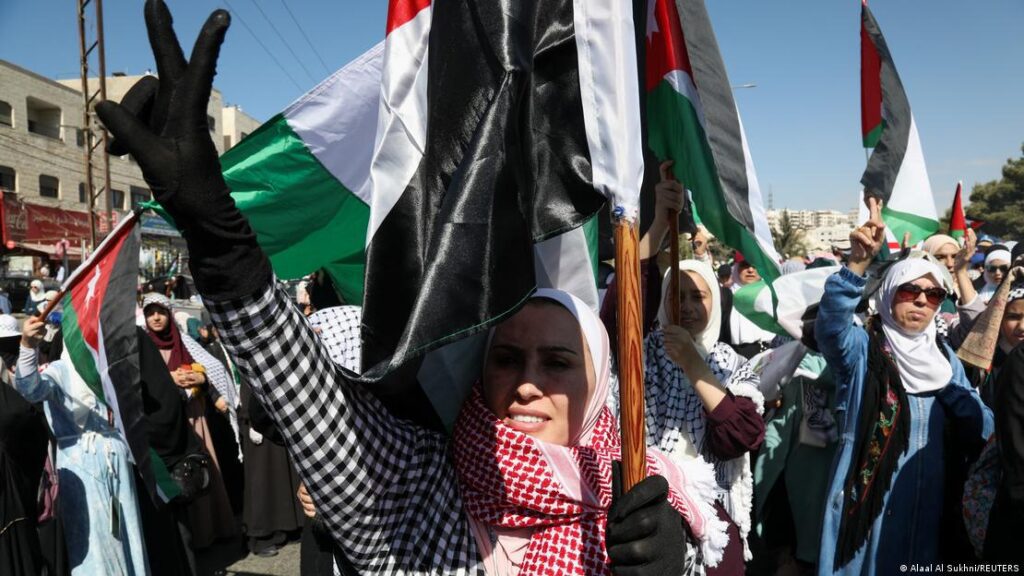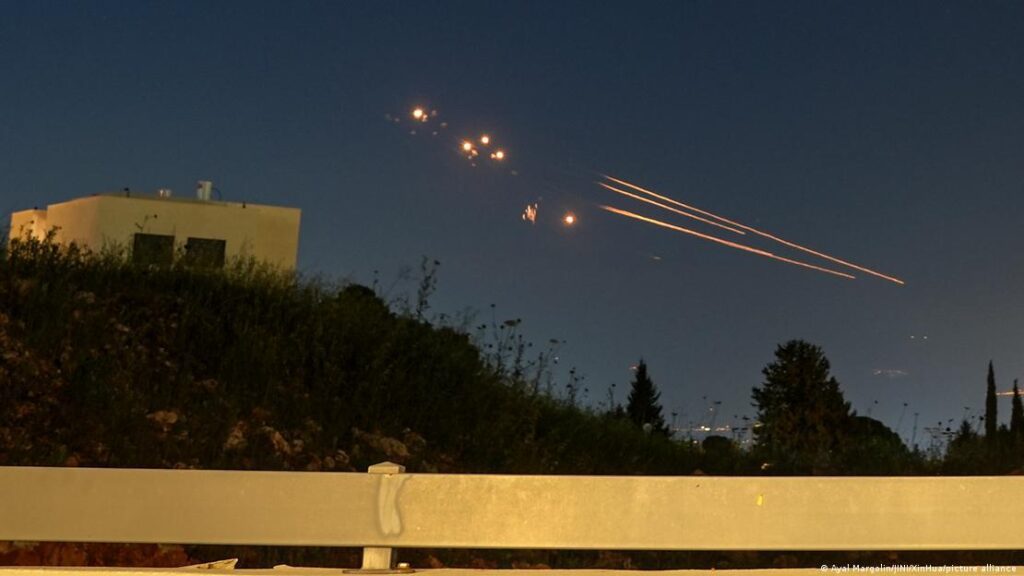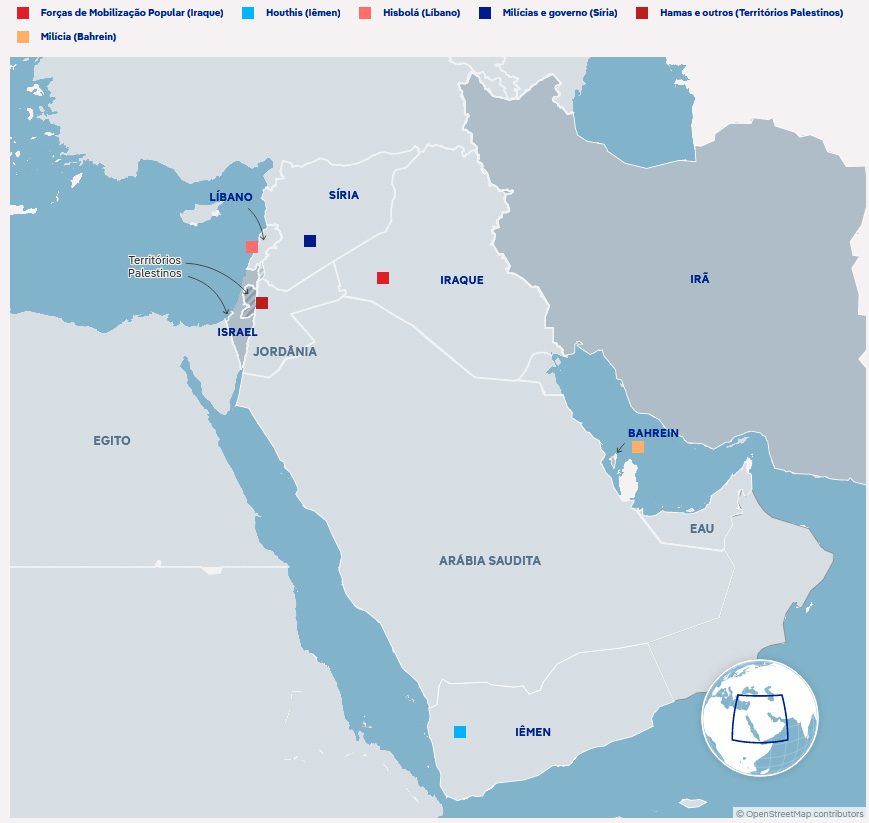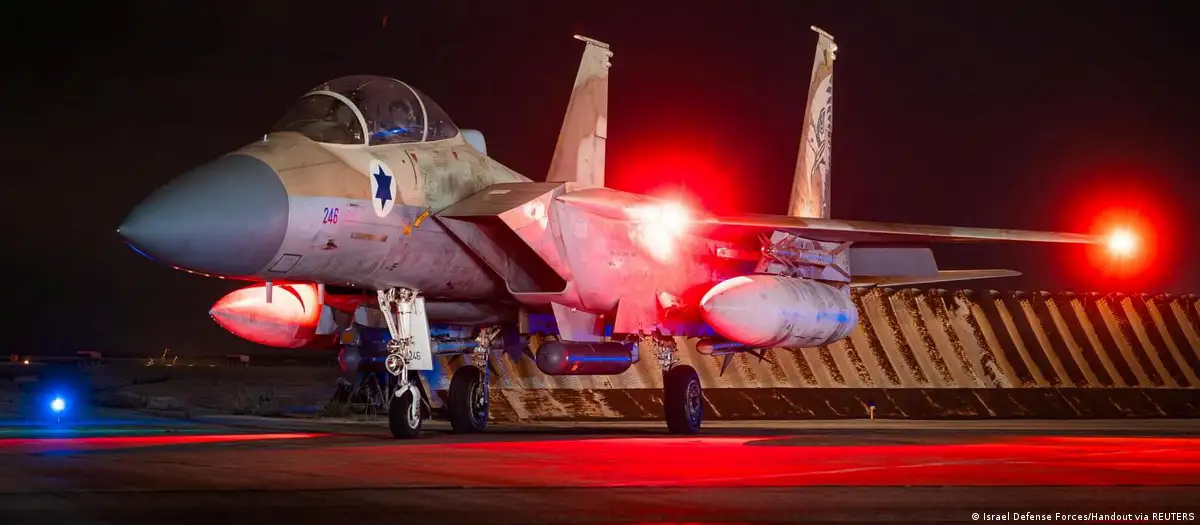While some analysts have highlighted Tel Aviv’s support for the unprecedented Iranian attack, nations such as Jordan and Saudi Arabia have more complex reasons for wanting to stop Tehran.
When Iran launched more than 300 drones and missiles against Israel on Saturday night (April 13) in retaliation for an attack in early April on its consulate in Damascus, Syria, Tel Aviv’s allies intervened on its behalf.
The air forces of the United States and the United Kingdom helped shoot down several of these projectiles. France may also have participated in patrolling the area, although it’s not clear whether the French shot anything down.
But what drew a lot of attention was the fact that the Jordanian Air Force also cooperated. The country opened its airspace to Israeli and American planes and apparently shot down drones that invaded it.
According to the Reuters news agency, residents heard intense aerial activity, and images of the remains of a downed drone in the south of Amman, Jordan’s capital, circulated on social media.
“Gulf states, including Saudi Arabia, may also have played an indirect role, as they host Western air defense systems, surveillance and refueling aircraft that would have been vital to the effort,” reported the British publication The Economist.
On social media, some observers saw the Arab involvement as proof that Arabs and Israelis can work together and that Israel is not alone in the Middle East.
“We may not know for a while all the details of the Arab cooperation tonight in intercepting the Iranian attack on Israel, but it was undoubtedly significant, including the use of Jordanian airspace. This certainly helped save many Israeli lives,” posted journalist Anshel Pfeffer of the Israeli daily Haaretz on X (formerly Twitter).
“The big news in Israel this morning is the Jordanian Air Force intercepting drones heading towards Israel in its airspace. Especially remarkable for the generation of Israelis who remember protecting themselves from attacks from Jordan,” Mairav Zonszein, an analyst at the NGO International Crisis Group, wrote in X. “What we have learned from this: diplomatic agreements are vital for stability.”
Julien Barnes-Dacey, director of the Middle East and North Africa program at the European Council on Foreign Relations, points out that even important Arab countries critical of the war in Gaza, such as Jordan, supported the Israeli military reaction to the bombs sent by Tehran.

A tenuous balance for Jordan and Saudi Arabia
More than half of Jordan’s population is believed to have Palestinian roots, including the country’s own queen. In recent weeks, the country has seen increasingly aggressive protests against Israel.
At the same time, Jordan shares a border with Israel, is the guardian of the Al-Aqsa Mosque in Jerusalem – an important site for Muslims, Christians and Jews – and works regularly with the Israeli authorities, albeit often behind the scenes.
The Jordanian authorities, who also have an important ally in the US, need to balance conflicting interests and their own political stability and self-defense. Hence the speed with which Jordan declared that, by helping Israel, it was actually defending itself.
“Some objects that entered our airspace last night were intercepted because they posed a threat to our people and inhabited areas,” the Jordanian government said in a statement. “Several fragments [of the downed drones] fell on the country’s territory without causing significant damage.”
But for Emile Hokayem, of the International Institute for Strategic Studies, Jordan’s involvement was also partly about “showing that Jordan is a good partner for the US”. “Jordan can be treated better by its partners in the West,” he wrote in X. “But the question is: how will Jordanian public opinion view this defense of Israel?”
Saudi Arabia also had to balance its own interests, international alliances and realpolitik with appearances around the Gaza conflict.
The wealthy Gulf state was ready to normalize relations with Israel before the Hamas attacks on October 7 that left around 1,200 dead. But the Israeli response in the Gaza Strip has put those plans on ice. In six months, the death toll in the Palestinian enclave has passed 33,000, according to the Hamas-controlled Health Ministry.
The Saudi government welcomes calls for a ceasefire in Gaza and has criticized Israeli conduct in the conflict. Privately, however, they are still interested in improving relations with Israel, according to experts.
Long-standing conflict between Iran and the Gulf

Whether or not the Saudis intervened in favor of Israel in the case of the Iranian attack, they have other reasons for wanting to shoot down Tehran’s missiles.
For decades, the Middle East has been divided along religious and sectarian lines, with the Gulf Arab states and their Sunni Muslim majority populations facing off against Iran, where Shiite Muslims predominate. The enmity is reminiscent of previous conflicts in Europe, when the two main sects of Christianity – Protestants and Catholics – were warring rivals.
Countries in the central Middle East such as Iraq, Syria and Lebanon, whose populations are a mixture of Shia and Sunni Muslims, as well as other religions and ethnicities, have found themselves in the middle of a dispute for influence between Iran and the Gulf States.
This is where the so-called Iranian “agents” come into play, a group that includes Shia Muslim organizations that Iran supports financially, militarily, logistically and even spiritually. The Houthi rebels in Yemen, the militias known as the Popular Mobilization Forces in Iraq and the political and military group Hisbollah in Lebanon are all members of this Iranian-sponsored alliance.
The Islamists of Hamas are also supported by Iran – but they are an exception in this case, since, like the majority of Palestinians, they are Sunni Muslims.

Iran’s agents in the Middle East
As part of the Iranian offensive, these groups fired rockets from Yemen, Syria and Iraq towards Israel in the early hours of Saturday and Sunday. In Iraq, there are reports that American soldiers stationed there shot down some of these rockets. It is unclear whether the Saudis intercepted any coming from Yemen, but they have done so before, at the end of last year.
“For regional actors, most notably Saudi Arabia and Jordan, the argument will be that they are legitimately protecting their sovereign airspace,” opined Masoud Mostajabi, Deputy Director of Middle East Programs at the US Atlantic Council, in an analysis published on Saturday evening.
“However, if tonight’s attacks escalate into a broader Israel-Iran conflict, regional actors perceived as defenders of Israel could end up being targeted and drawn into a regional conflict,” Mostajabi warned. “Given what is at stake, it is likely that regional leaders will be motivated to act between the two parties to bring this confrontation to a close.”
*** Translated by DEFCONPress FYI Team ***
